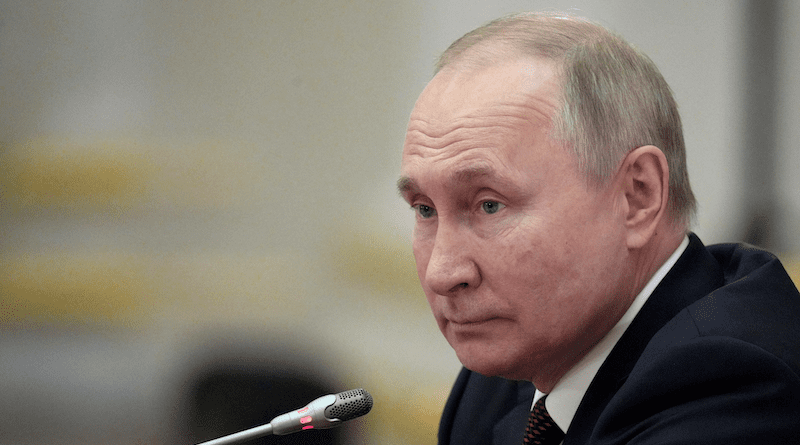Magnitsky Case Triggered Putin’s Turn From The West Toward China – OpEd
By Paul Goble
There is no doubt that Moscow’s turn away from the West toward China was the result of a personal decision by Vladimir Putin, but there is still little agreement as to why the Kremlin leader made such an unnecessary and at least potentially “fatal error,” Vladimir Pastukhov says.
Many are inclined to suggest that this was a geopolitical choice, and a few say it reflected the calculations of the Russian elite that this would protect their power, the London-based Russian commentator says. But he argues that this choice reflects a confluence of “chance events, emotional reaction and psychosis” (kasparov.ru/material.php?id=651BE4D6A884A).
According to Pastukhov, turning from the West to China was “not dictated by the national interests or Russia or even the narrowly selfish interests of the Putin clan and of Putin personally.” Putin and his team had been able to do what they wanted – pocket their illegal gains – without much interference even when Moscow was looking West.
But all that changed as far as Putin and the Kremlin were concerned following the unexpectedly sharp reaction in the West to the murder in a Russian prison of Sergey Magnitsky who had been working as a lawyer for an American investment firm. The Russian siloviki and their Kremlin masters “underestimated the potential of ‘public policy’ in real democracies.”
Given massive reporting about the Magnitsky case, “the situation went out of control,” Pastukhov says. And the Kremlin found out that its actions had caused a mobilization of public opinion in the West at a level “unprecedented” in recent relations between the Russian Federation and the West.
\The US adopted the Magnitsky Act which over time “has evolved into a universal mechanism” of going after the Putin’s elite and its crimes. But from the very beginning, this “became a trigger of that emotional wave which led the Putin elites to ‘disappointment in the West’ and a flight to China,” the commentator says.
One confirmation of this interpretation, Pastukhov argues, is the fact that Vladimir Kara-Murza, who has earlier worked to promote the Magnitsky Act, was given “the longest jail sentence among all political prisoners” of the Putin era, “surpassing even the sentence of Navalny.”
Thus, allowing or ordering the killing of Magnitsky became “Putin’s fatal mistake because if was precisely the ‘flexible’ relations with the West that had allowed him and his entourage not only to rob Russia but also to comfortably launder the loot around the world. Now, they have lost that opportunity” and won’t get it back with China in Russia’s corner.
“It is unlikely that this was their intension,” Pastukhov concludes; “but this is what happens when emotions and self-confidence take precedence over calculations and common sense.”


Thank you for this information. I’m saddened and at a loss to understand what can be done to diffuse those who gain power and then commit atrocities and destroy the lives of so many innocent people. Putin and others are a sad comment on the evolution of the human race. Thanks for your work, expertise, and communication.